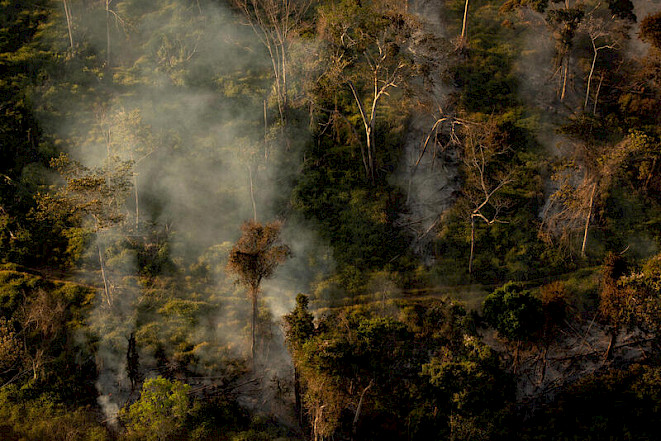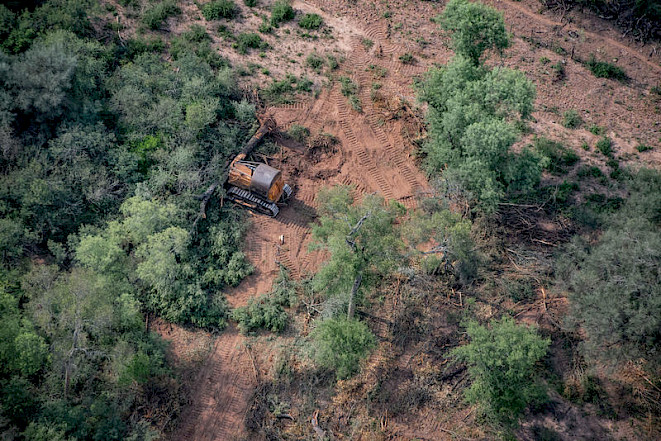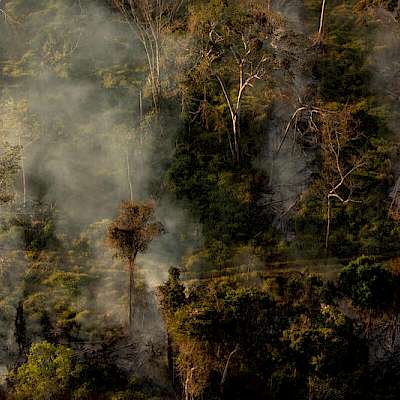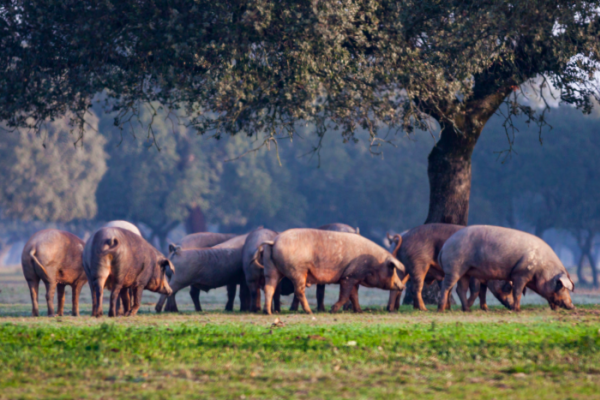Written by: Alison Kirkman, Forests Media Campaigner at Greenpeace UK
How many people know that even if we ended fossil fuel use tomorrow, without making significant changes to our global food system, we would still be heading towards catastrophic levels of warming, far beyond 1.5 degrees?
Changing the food system is arguably far more complex than ending fossil fuels. And not just the practical side of it. Food is personal, it’s cultural, it’s part of our heritage. It’s part of religious ceremonies, connected with family, place, history and community.
But meat and dairy production is hugely inefficient. It uses 83% of the world’s farmland and provides just 18% of the calories and 37% of the protein we need in our diet.
And the industrial farming methods used to produce meat and dairy are responsible for 19% of all planet heating gases. Parts of the Amazon and other climate-critical ecosystems across Brazil are seeing higher levels of deforestation than ever before to make way for cattle ranches to produce beef, or for crops imported to the UK as animal feed for chicken and pork.

Image credit: Greenpeace “ Deforestation and Fire Monitoring in the Amazon in July, 2020”
Scientists say we need to halve our consumption of meat and dairy globally by 2030 to prevent climate breakdown. In Europe, that means reducing by 70% as we already eat more than twice the global average. Alongside this, we need to shift to feeding livestock on leftovers, using farmed land to feed people first, not to grow food for animals to produce meat.
With food prices rising fast alongside energy prices due to post pandemic inflation and the impact of the invasion of Ukraine, it's critical to ensure people can afford to eat healthy, sustainable food as well as heating their homes. The living wage and benefits should be tied to the price of these essentials and the government should explore implementing a living income policy. Supporting those on low incomes is morally the only choice and economically sensible in the medium to long term.

Image credit: Greenpeace “Deforestation for Farming and Agriculture in Chaco Province, Argentina”
There’s no getting away from it, changing our food system is a big task. But, just like fossil fuels, we need to have difficult conversations about what we eat and how it’s produced so that everyone can better understand, accept and act. By changing our food system, we can create a more sustainable and affordable future to get everyone eating better.

